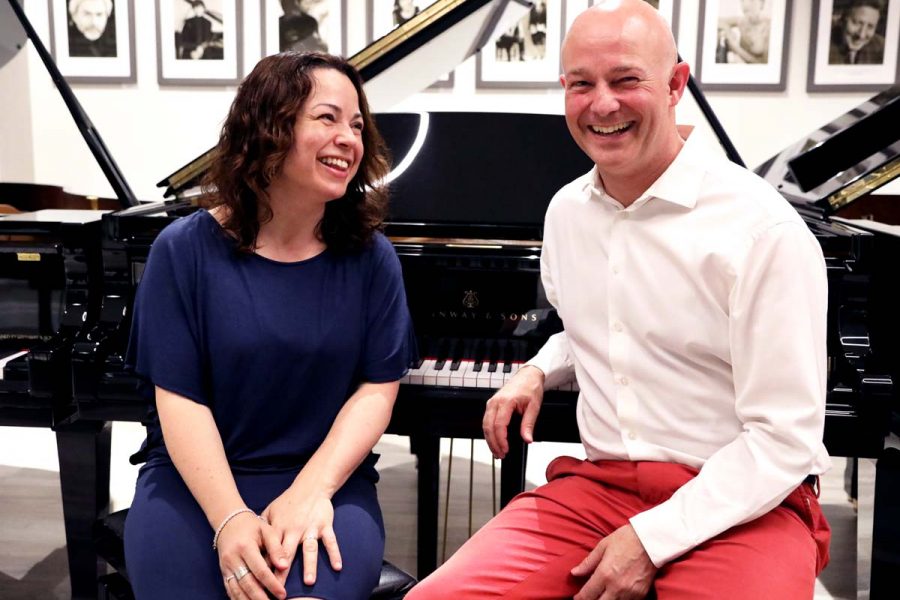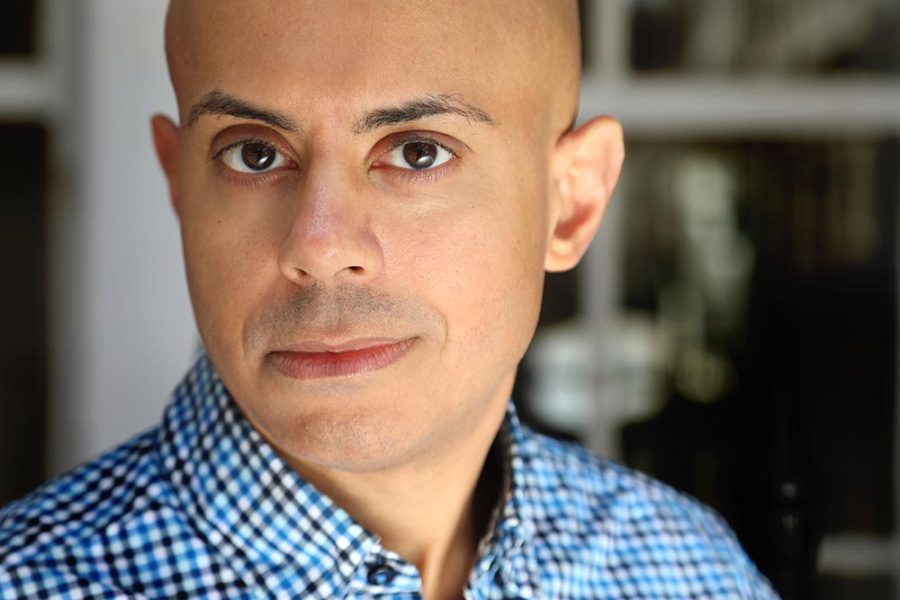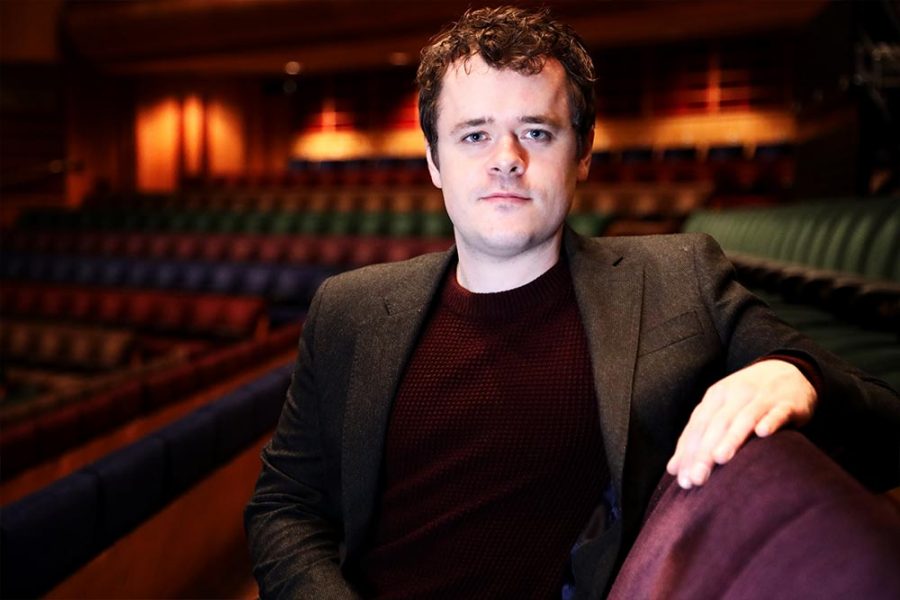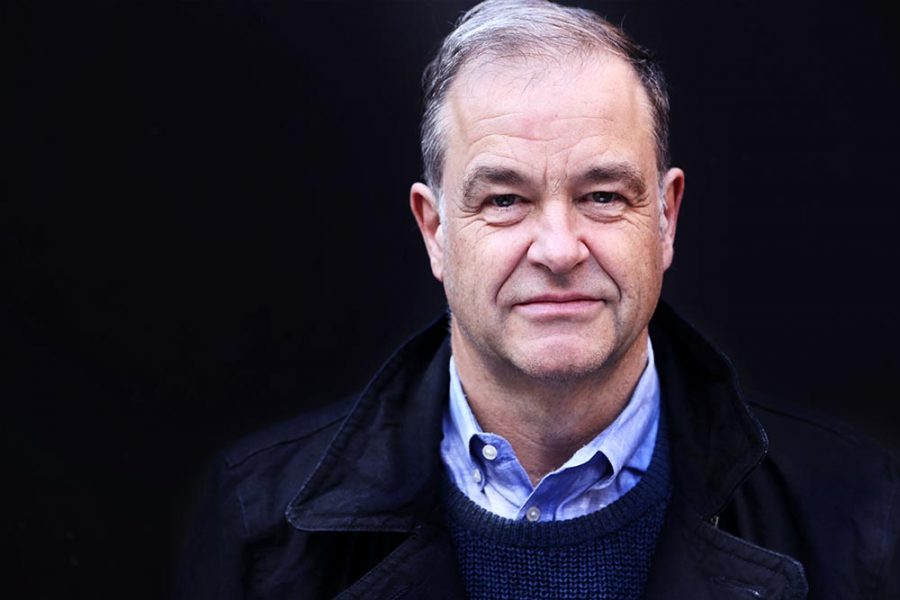The Wanderer: Philippe Cassard

April 2015
Words by
Emer Nestor
Photos by
Frances Marshall
Admired throughout the western world for his ethereal interpretations of the music of Debussy, and unique Schubertian sensitivity, French pianist Philippe Cassard has enjoyed a superbly successful career, since winning the Dublin International Piano Competition in 1988.
He has worked with many fine conductors, including Sir Neville Marriner, Jeffrey Tate, Raymond Leppard, Yan Pascal Tortelier, Vladimir Fedoseyev, and Charles Dutoit. Cassard’s recordings with Deutsche Grammophon, Hyperion, Harmonia Mundi, and Accord-Universal have received high praise, as has his foray into the literary world with his publications: Deux temps trois mouvements: Un pianiste au cinéma, and Franz Schubert.
Following his recent performance with soprano Natalie Dessay at the National Concert Hall in Dublin, Cassard takes time out to discuss his musical journey so far.
Winning first prize changed my career completely. The competition provided me with so many concerts in Europe, New York...I was playing with orchestras, I had an agent in England...it was amazing!"

What are your most enduring memories of your time competing in the Dublin (AXA) International Piano Competition, and how did winning first prize alter the course of your career?
I can remember every single minute of those 15 days of competition, because I enjoyed it! In fact, that was probably the first time in my life that I enjoyed doing a competition! I remember the fantastic team…the way in which the competitors were welcomed…the host families. My family was half Irish and Half French, and we enjoyed a wonderful friendship. They are now almost like my second family. From the very first moment I stood on Irish soil…I have very good memories.
Doing a competition is always very tense and pressurized. Everything was done to ensure that each competitor was in the best mood, and in the best condition to play, and perform in front of the jury. We had pianos to practise on. We had wonderful drivers. We had everything…food, refreshments…everything. It was wonderful!
And then when you succeed to the second and third rounds, and then the final…I got more nervous and more unsure. This is why I didn’t like competitions in general, because I always felt that I was not good enough. When I won first prize in the NCH, it was a great surprise for me, because I really didn’t expect it!
Those days are now a sort of treasury for my memory. Winning first prize changed my career completely. The competition provided me with so many concerts in Europe, New York…I was playing with orchestras, I had an agent in England…it was amazing!
Do you think competition is a necessary part of every young performer’s life?
No I don’t agree with that. It was important for me. I know many talented young people who don’t win competitions, but who are really great players. A competition can be very helpful, and in my case it was. Nowadays, if a great conductor knows you, or if an agent is interested in you, competition is not completely necessary.
You have received international applause for your interpretation of Debussy’s piano works, what attracts you to his music?
Oh my God! Probably, because Debussy is very French and very unique. He was surrounded by great French artists, painters, poets, and writers. He was able to escape the huge Wagnerian influence on French composers at that time, and could invent a new language…a new way to write music, with no rules. He was very free. He trusted his inspiration, his instinct, for creating new sounds and colours in a very sensual way. He was one of the major composers of the 20th century. I feel very close to his world, to his way of making the piano colourful…that’s what I like…when a piano is full of colour.
Why did you decide to do a ‘Debussy marathon’ (playing all of his piano works in one day within 4 concerts), and how was the experience?
I did it because in 1 day you could create a sort of unique large painting of 35 years of creation. And because there are a little over 80 short piano pieces, ranging from 1 minute to 6/7 minutes, I’m not sure audiences would go to 4 different evening recitals with only Debussy on the programme. In 1 day, it’s like a poetic journey. For me, it was not a physical performance. It was just a poetic performance…a way for me to present Debussy little by little: first a little spot of colour…then different colours. After each, you could reveal the portrait of Debussy from 1885 to 1915.
As a fine interpreter of Schubert — whose fascination with the archetypal hero of musical romanticism (the Wanderer) permeates the pages of many of his manuscripts — what inspired you to write about him?
What I love about Schubert is very simple — he talks to me! Beethoven has a universal message to the humanities, to the world, to the galaxy, and Schubert…he just speaks to me. The way he walks in nature and the forest, and the way in which he talks about his loves through his lieder…that moves me. I love the simplicity, the constant reinvention, of melodic themes. He wrote everything with such inspiration and such energy. I’m moved by this man. He was very anonymous. In Vienna he was known only to a small circle of people. He didn’t earn money from his music…he was a teacher. Everything about his life, and his music moves me. Of course, I love Beethoven, but Schubert has such an intimate way of communicating with you. That makes him absolutely unique!

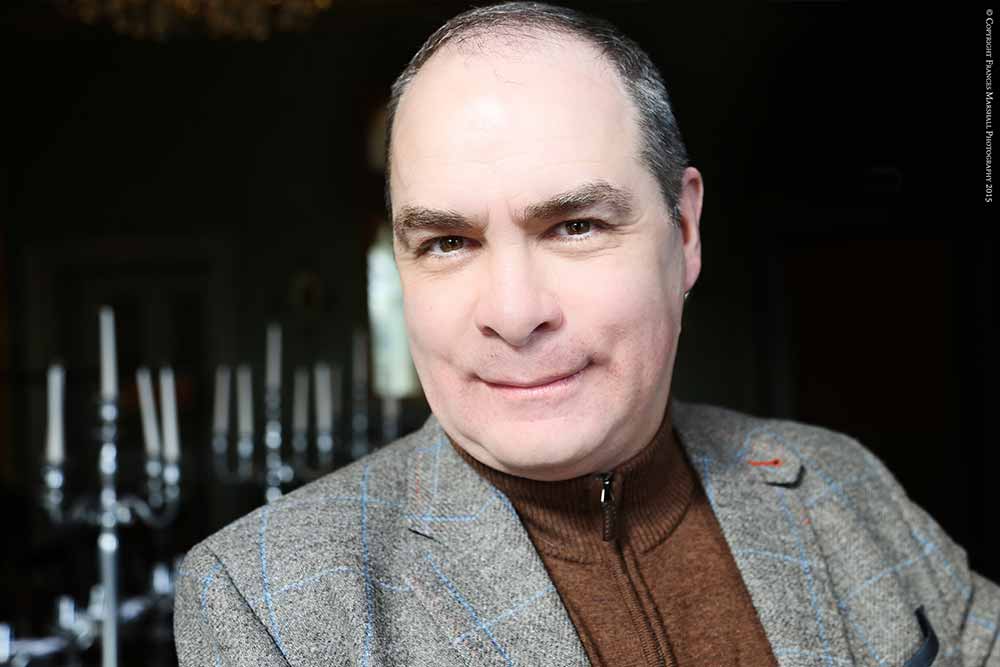


The music provides the colour to the image on the screen. I don’t like it when you have sad music to go with sad scenes, and very violent music to go with violent scenes...that is just stupid!"

You’ve also written about the relationship between music and film, how important is music in cinema?
It’s a big question and so difficult to answer…that’s why I’ve written the book [he laughs]. The music provides the colour to the image on the screen. I don’t like it when you have sad music to go with sad scenes, and very violent music to go with violent scenes…that is just stupid! The music director has the last word. He commissions the music and sometimes he can make poor decisions when combining the music with the images.
Alfred Hitchcock commissioned the American composer Bernard Herrmann to write many of his movie scores, and all of his music is part of the film. You don’t notice them. They are part of the dramatic progression of the movie. This is how it should be.
Do you have any further writing plans?
Yes, I’m trying to write about Debussy…but it’s so difficult, because there are so many really well-written books about him already. I would like to represent the point of view of the interpreter, because I am only an interpreter. I am not a musicologist. I am not a historian. I am not a composer. I just try to offer an interpreter’s point of view…only that…a very modest view.
Having also recorded the first volume of Bach’s ‘Well-Tempered Clavier’ and provided your own ending to the ‘Art of Fugue’, what attracts you to the music of this composer?
In general, for me it’s like when you are going to the restaurant. You don’t start with dessert. You don’t start with a big piece of meat. You compose something well balanced, and conclude with a sweet. I’m very narrative, I read books and I love drama and novels, and I really try to talk to the audience. Today, I feel more free than 20 years ago, in my choice of repertoire, because I don’t play pieces that I don’t like. I play what I like…what comes naturally to me…what matches my feelings, my emotions and only that.
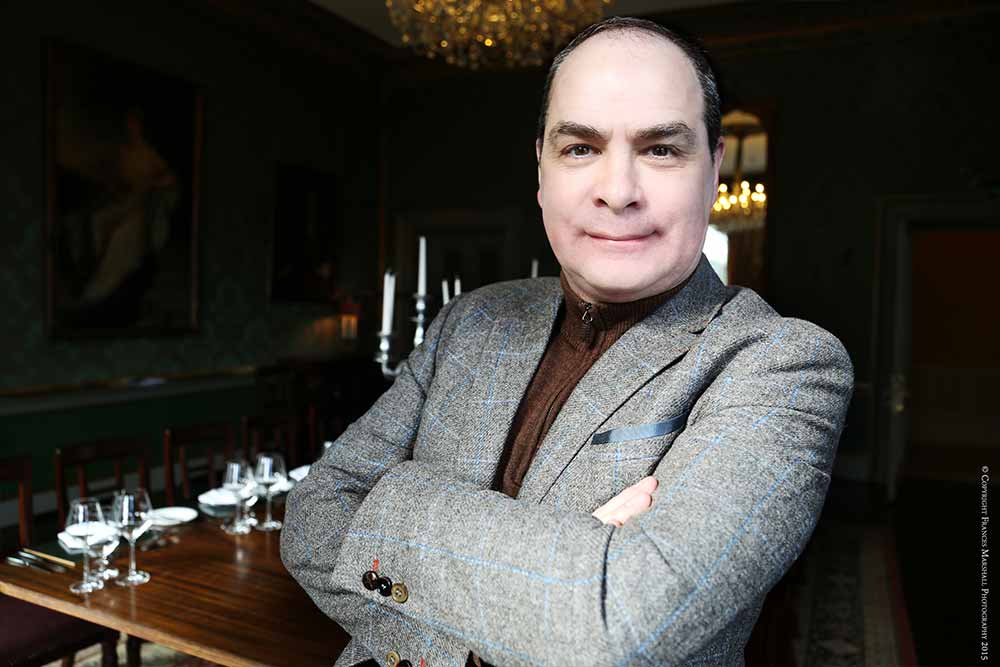


What do you expect from a student who attends one of your Master Classes?
I don’t really expect much. Master classes are really special, because you don’t know your students and they don’t know you. There are no long-term expectations. It’s just a very fresh, spontaneous exchange for 45 minutes. The only thing I desire is for the student to be reactive. The teacher must understand as quickly as possible the nature and personality of the student. The student also has to put the teachings of his normal resident teacher to one side and be absolutely open to what the Master-class teacher tries to get from him in such a short time. Even if it’s difficult, or demanding, or surprising, or shocking…never mind. He has to be as open as possible, and then after the lecture he can go back to his previous ways if he so wishes.
I don’t like Master classes in which the teacher performs a show. I hate that. It’s so easy to humiliate students, to make audiences laugh, and I hate that. You can be funny and make jokes, but not at the expense of the student. The teacher has to make the student as comfortable as possible to get good results. If the student feels that the teacher respects him and wants the best for him, then he will give it without any hesitation.
The main thing that I ask of my students is to open their minds…to listen to as much music as they can, and not only piano music. They have to listen to orchestral, vocal, chamber music…everything. If a student wants to play a Schubert sonata for example, it is their duty to sight-read all the other [sonatas]. The internet is not enough…you must experience music through live performances. You must also expose yourself to literature, art, opera, painting…everything…which is important to the formation of a personality.
Tell us about your involvement in the West Cork Chamber Festival in Ireland last Summer.
It’s a very nice festival. The place is just gorgeous…Bantry House and the little village and the church…I love the place. I love the way in which the Festival is done…very open-minded people make the festival so interesting. The artistic director, Francis Humphrys, is a music lover. He knows so much about music. The knowledge of Francis is really impressive. He goes to concerts, he discovers new music all the time. And I love the way he brings people together to play from different styles and backgrounds. I love the audiences too. They love discovering music, and they appreciate the goals of Francis in making programmes, themes, putting music together…it’s wonderful!
Are you working on any recordings at the moment?
Yes! I don’t like making recordings every 6 months. I have many colleagues who are like factories. I record what I like, and I record what I have always played. I don’t record new music for the sake of it anymore, because recording is like photography, it has to be very well prepared and part of you. In spring 2016 I will record the Ravel piano concertos, which I am really looking forward to.
All images displayed in this article are subject to copyright.
Share this article


